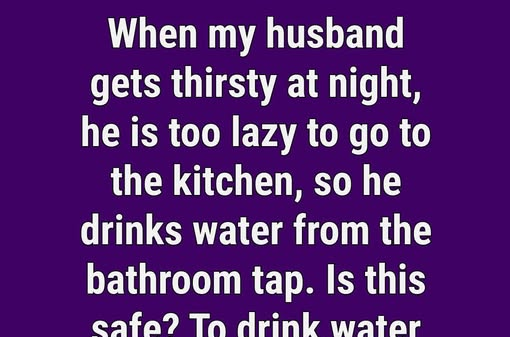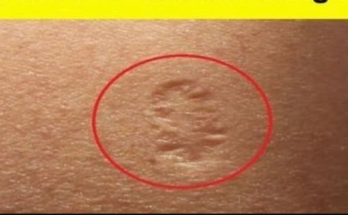Many of us have done it—woken up in the middle of the night, too sleepy to walk to the kitchen, and taken a sip from the bathroom tap instead. My husband does it all the time. No matter how many times I tell him it’s not quite the same as kitchen water, he laughs and says, “Water is water.”
But something about that never felt right, so I decided to find out the truth.
Do All Taps Really Deliver the Same Water?
At first glance, tap water looks identical. It all comes from the same main supply, after all. However, the path that water takes inside your home can make a big difference in its quality and safety.
Kitchen taps are usually connected directly to the mains, which means the water that flows through them is fresher and more frequently filtered.
Bathroom taps, on the other hand, may be supplied through storage tanks or older plumbing systems. That means the water can sit still for hours—sometimes even days—collecting minerals, bacteria, or tiny traces of metal from the pipes.
What the Experts Say
Health and plumbing experts agree: bathroom tap water usually isn’t dangerous, but it carries a slightly higher risk of contamination.
In older homes, pipes can release small amounts of lead or other metals. If water remains stagnant for long periods, it can also develop an odd taste or even harbor microorganisms.
That’s why most people—and professionals—recommend using kitchen tap water for drinking. It’s cleaner, fresher, and specifically intended for consumption.
My Little Experiment at Home
To test my instincts, I ran a simple experiment. I filled two glasses—one from the kitchen tap, and one from the bathroom.
The kitchen water looked crystal clear.
The bathroom water? A bit cloudy, with a faint metallic taste.
When I tested both samples using a home water testing kit, the results confirmed my suspicion. The bathroom tap water had more hardness and trace metals.
My husband didn’t believe me until one night, he took a sip and frowned. “Why does it taste like soap?” he asked.
That was the last time he drank from the bathroom tap.
So, Should You Avoid Bathroom Tap Water?
If you live in a modern home with updated plumbing, the water is probably safe—but it’s still better to be cautious.
Bathroom water is fine for washing hands or brushing teeth, but if you’re thirsty, always go to the kitchen or keep a bottle of filtered water nearby.
The Bottom Line
Drinking bathroom tap water occasionally won’t likely harm you, but kitchen water is the safer, cleaner choice for everyday use.
These days, my husband keeps a full bottle of water beside the bed—though, of course, he insists it was his idea all along.
Lesson learned: a few extra steps to the kitchen might just be worth it.




